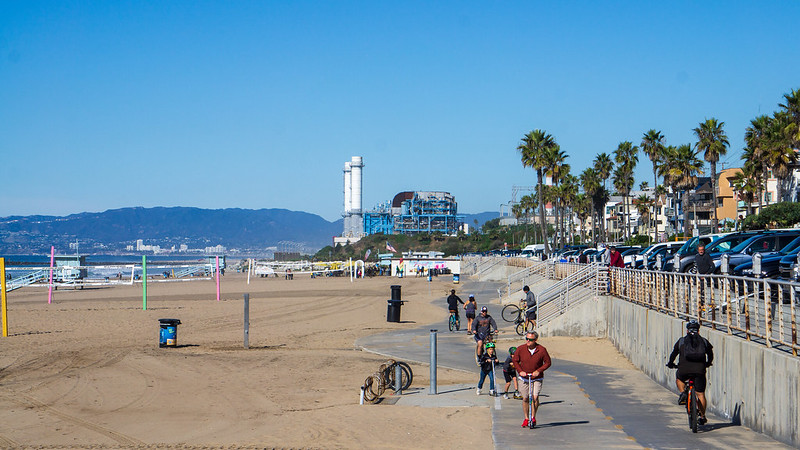Air Quality Watchdog Agrees to Get Tougher on Refineries
There’s a favorable settlement in the case brought by Earthjustice on behalf of EYCEJ with help from UCLA law students.

Last year, the South Coast Air Quality Management District was accused of not properly enforcing a state law that requires petroleum refineries to install air-quality monitoring systems around their perimeter. Essentially, the air quality watchdog exempted smaller refineries from having to follow the rules. Now, the SCAQMD has agreed to reverse course and move to close that loophole.
The allegation came in a petition filed in LA Superior Court by Earthjustice on behalf of the East Yard Communities client for Environmental Justice. Two UCLA Environmental Law Clinic students, Sarah Repko (JD ’23) and Monica Heger (JD ’22), helped draft that petition. The pair undertook this work through the Clinic last spring alongsideEarthjustice’s Community Partnerships program, which litigates on behalf of local organizations. That program enforces restrictions on local pollution, including state requirements for fenceline and community air monitoring near refineries.Heger and Repko researched and wrote a draft, laying out the case that SCAQMD must change its rules.
And now it will. This month, the parties agreed to settlement terms that include SCAQMD releasing new rules that remove the exemption for refineries that produce less than 40,000 barrels of crude oil per day. The settlement says the SCAQMD will hold a board meeting to approve the new guidance by January 2024 and that the judge overseeing the case will enforce the terms of the settlement.
Even though the refiners at issue are small, it’s a big victory for fenceline communities in LA and beyond. California, the third-largest refiner of crude oil in the US, hasnineteen refineries, and nine of those facilities sit in Southern California. Despite their danger, the facilities tend to be located in densely populated areas, such as the cluster of six refineries in Carson, Wilmington, and Torrance. The communities where these refineries are located are overwhelmingly Black or Brown and have far lower average income than the Los Angeles metro area.
SCAQMD Executive Director Wayne Nastri was quoted recently as saying that SCAQMD is doing the best it can. “We’re focusing on the large facilities because those are the ones that everyone sees that everyone is concerned about. And they require the most attention,” he said. “As time progresses, we learn more, and we have the capability to do more.”
The large facilities might be the ones that “everyone sees,” but the residents represented by East Yard Communities for Environmental Justice see the action and the consequences of the smaller facilities too—higher risk of cancer and dirtier air in a region already notorious for poor air quality. That’s why closing this loophole is going to be important.
That’s also why Senate Bill 674 isimportant. That bill authored by State Senator Lena Gonzalez would create a statewide standard for the fenceline air monitoring program, getting rid of the exemptions for small refineries at the state level, and would expand the number of chemicals that all refineries must monitor.
